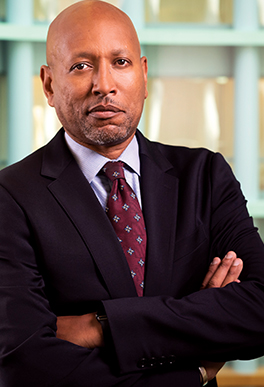Comprehensive best practice data is the key to improving the investment climate of emerging markets, writes the International Finance Corporation's Ethiopis Tafara.
Investors across the world are keeping their capital on the sidelines. In 2018, they have parked as much as $8000bn in negative-yielding bonds, opting for the safety of government bonds rather than the promise of strong financial returns in other markets.
This is bad news for emerging markets, who require up to $4000bn a year to meet their development needs. These countries have made tremendous progress over the decades in developing local capital markets that can mobilise domestic and foreign capital, but something is still missing: complete, accurate and reliable information on the environmental, social and governance practices (ESG) of local companies.
For capital to flow freely into these countries, investors need to better understand how risk is managed and how value is created. Adhering to high standards of disclosure and transparency can mitigate some of the inherent risk in investing in emerging and frontier markets, such as weaker public institutions and governance, heightened social and environmental risk, and smaller companies.
The value of detail
Expanding the availability of ESG data can go a long way. Companies in Brazil, South Africa and India that are part of sustainability indices and provide greater transparency on their ESG performance gain a competitive advantage. They have outperformed their broader markets in recent years. They have attracted capital at reduced cost.
Key global investment players, including giants such as BlackRock, the Japanese Government Pension Fund and State Street Global Advisors, which collectively manage close to $10,500bn in assets, are now calling for greater ESG transparency in emerging markets. They are adding their influential voices to the debate, and indicating that they are ready to invest as ESG reporting conditions improve. They agree that ESG data can create levels of trust that build deep and liquid local capital markets, which is vital for a thriving private sector.
Stock exchanges can play a crucial role in strengthening disclosure requirements, to ensure that local standards on ESG transparency are aligned with international best practices. That’s why my organisation, the International Finance Corporation (IFC), teamed up with the UN's Sustainable Stock Exchanges initiative to help improve ESG standards for at least 78 exchanges across emerging markets.
The new partnership focuses on helping local stock exchanges produce ESG disclosure rules that align with global best practices while meeting specific local needs. This work will draw on the Sustainable Stock Exchanges initiative’s Model Guidance on ESG Disclosure and the IFC’s recently released Disclosure and Transparency Toolkit for companies, investors and capital markets regulators. Since the toolkit’s release in January 2018, it has been used to develop market and regulatory guidance in Kazakhstan, Kenya, Nigeria, Peru and the Philippines.
First principles
This partnership is part of a broader effort by the IFC to transform standards in local capital markets in the same way that the Equator Principles transformed the activities of banks and project finance more than a decade ago. Those principles were based on the IFC’s environmental and social performance standards.
Today, we are working with institutional investors, asset managers, stock exchanges, data providers, regulators and companies to promote a clear set of ESG performance indicators derived from our performance standards. We’re seeking to develop standards that are most useful to investors in their decision-making while promoting better reporting and disclosure by listed companies in emerging markets.
Together with our partners – stock exchanges, investors, regulators and development organisations – we believe we can help build momentum across capital markets to match responsible companies in emerging markets with local and international institutional investors. In this manner, the investment that developing countries need will flow more readily, while generating returns for investors.
Ethiopis Tafara is the International Finance Corporation's vice-president and general counsel responsible for legal, compliance risk and sustainability. The IFC, a member of the World Bank Group, is the global development institution focused on the private sector in emerging markets.



